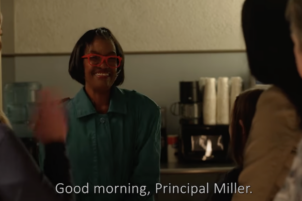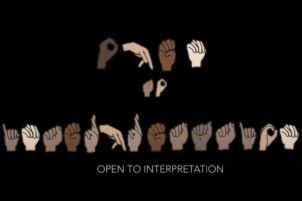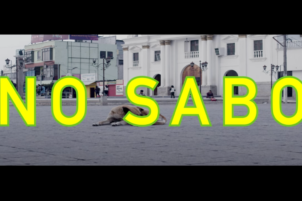On the 30th anniversary of the Americans with Disabilities Act, RespectAbility board member and co-founder of Bunim-Murray Productions, Jonathan Murray, hosted a panel of entertainment industry writers, producers, and executives to speak about the experience of the disabled community within the industry. Part one of the four-part “Fighting Stigmas with Hollywood” series, “Respecting the Ability: Ensuring Authentic Representation in the Entertainment Industry,” is about the importance of not only allowing but creating more supportive environments for people in the industry to tell the authentic and diverse stories representing all.
The lack of representation of the disability community in entertainment is vast. While one in five people in the U.S. has a disability, just 3.1 percent of characters on a primetime show have a disability – meaning that millions of people are unable to see themselves represented in media today. The shortage is one reason why RespectAbility is fighting for change; however, a change like this must be embraced from the top and have buy-in at every level. Studio heads, showrunners, producers, and writers must do their part to inflict change on the industry and showcase diverse people and stories. The participants shared why change is happening within the industry, and each has proven to be changemakers in their own right.
Murray began the discussion with a question directed to writer/co-executive producer of Grey’s Anatomy, Elisabeth Finch, who is living with cancer: “How has being a disabled writer affected the Grey’s Anatomy writing room?”
Finch was in a cancer trial of 13 people; currently, she is the only one who is still living. Her experience inspired a character on the show; however, the discussion in the writers’ room surrounded “winning and losing battles” when it came to cancer.
“A lot of people had a perspective that they didn’t have before because we’ve been showing it far too much in a black and white state,” Finch said.
Finch felt as if her experience was not based on “winning” and felt that the show should mirror that. Her showrunner stated, “we should be talking about this; we should be talking about your life.” The reaction of the viewers exhibited that by having someone in the writers’ room who is personally connected to the story is a realistic way of telling the story over playing a guessing game.
Murray continued the discussion with a question to the panelists about a time that their unique knowledge echoed a story.
Former medical doctor and a producer on the Humanitas Award-winning and Golden Globe-nominated ABC series The Good Doctor, David Renaud responded with an explanation of the importance of bringing the experiences of people with a disability into storytelling. “There’s always a character with a disability or issues feeling like an outsider, feeling underestimated and trying to prove that you belong, and that bleeds in every story,” he said.
As anyone might experience, feeling different or undervalued is common. If that is something that he can change, Renaud wants to change it through including representation of everyone on the screen.
Characters with disabilities are very rarely included in television and film. Creator, writer, executive producer and star of SundanceTV’s This Close, Shoshannah Stern was born deaf and recalled that she did not have a clear role model on television growing up that mirrored her life experience. She realized that as a young child she did not even include herself in her own stories.
“I never saw a deaf child like myself on tv or film,” said Stern. “I intentionally erased myself from my own stories.”
There is a sense of sadness in the realization that people who are underrepresented can unintentionally eradicate themselves from their own stories and creativity because of the lack of representation around them, even if they live in it. Being the first to do it and be recognized for that accomplishment comes with a great deal of pride and responsibility.
Renaud was one of the first people with a disability to join The Walt Disney Television Writing Program. “It gives you an opportunity to access writers’ rooms,” he said. “With a physical disability, it’s hard to get in the writer’s room and get those entry-level jobs, running around, getting lunch and coffee. . . it’s a lot of assumptions made that people with disabilities can’t do that.”
Carolyn Lertzman, who handles content review for Disney Channels Standards & Practices, Diversity & Inclusion, and Walt Disney Television Corporate Social Responsibility, reminded us that “25% of disabilities are visible, while 75% are not. . . that’s the biggest challenge, people being able to talk about it.”
Much like Renaud mentioned, people with nonvisible disabilities are less likely to bring it up because of the assumption that they will not be able to do their job well. It is vital that everyone knows that a disability does not stop someone from performing to the best of their ability. Much like Disney’s character, Della Duck, which Lertzman discussed. The introduction of Della Duck on Disney was so important and phenomenal because they wanted a character who was from the limb loss community because it was something that is underrepresented on children’s television. It was important that her disability was not the only thing her character was about, as they intentionally made her to be multidimensional.
Lertzman added, “people with disabilities, they don’t just appear one day— people are living their lives.”
In the end, Della Duck became a recurring character.
As with any workplace, it is important to have a diverse staff to make those changes, tell those stories and represent everyone. Diversity includes people with disabilities, not just race, gender, age and sexual orientation.
“When talking about inclusion and diversity, disability is last on the list, if it is on the list at all,” said Finch.
She went on to explain that an agent has told her that it is great to highlight her other diverse qualities, like being a woman or a part of the LGBTQ community, but don’t tell them about the disability because it might make them doubt her ability to do the job.
Grace Moss, who at the time was serving as Director of Talent Development & Inclusion for NBC Entertainment but now is at WarnerMedia, added that “reps, agents, and managers, the gatekeepers… if they’re not pitching a multitude of writers and backgrounds then that’s going to limit what people see.”
When more people are included in these decision-making rooms, we will see a much more diverse Hollywood, one that is inclusive to everyone including the 61 million people in the U.S. who have a disability.







